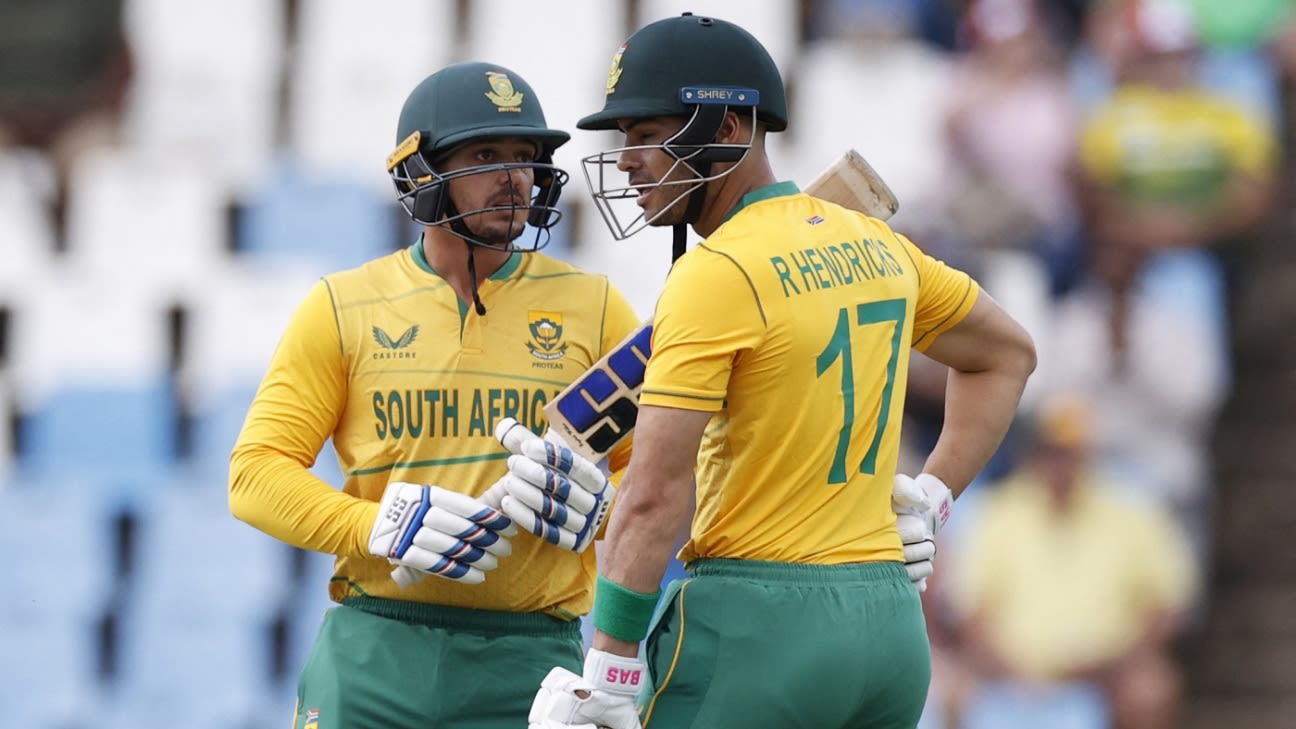“They’re about ten runs short.”
“They’re about ten runs short.”
In other words: keep it simple. After spending six years between 2016 and 2022 out of the West Indian side, Charles went through a period of soul searching,” and concluded that the only way he would get back into the side was to “make sure I have my basics on the down low.”
He was also given the freedom to do his thing. “We tell him to go hard. We give him the licence to hit,” Rovman Powell confirmed. And hit it he did. Charles struck 106 runs – 10 fours and 11 sixes – in boundaries in the 46 balls he faced, and the bulk of them were on the leg side. His use of his feet and wrists were hallmarks of his innings and, with plenty of width on offer, he was also able to use the room to carve the ball through the off side. It’s the aerial drives that he enjoyed the most, especially the one he played off Sisanda Magala to bring up three figures. “The shot that brought up the hundred was special,” he said. “Being able to hit a six over cover is not easy. It felt very good.”
Even after shots like that, Charles was wary that West Indies may not have enough runs. “We got to that point so we could expect they could get to that point,” he said.
As the powerplay unfolded, South Africa’s opening pair justified his dose of realism. De Kock and Hendricks scored 102 runs in the first six overs, and de Kock was responsible for almost two-thirds of them. “That’s the Quinny I know. That’s how he plays. The wicket allowed for his stroke play and it was one of those days that he found the middle,” Hendricks said.
De Kock revealed that, like Charles, his game plan was simple in a situation that could have overawed South Africa. “I just wanted to pick the right options. I said to the coach we just need a bit of hope,” he said.
He wasn’t alone in that thinking. “We never doubted ourselves at any stage. We believed we had the batters in the team to go out and chase the score so guys were quietly confident,” Hendricks said, and he included himself in that. When de Kock was dismissed, after scoring a hundred he “had been searching for,” Hendricks kept going, brought up his fifth half-century in seven T20I innings and took South Africa 66 runs away from the win. “He was quite the silent assassin,” de Kock said of Hendricks. “When he got out, I said to him, ‘Jeez we did something really special.’ We are very proud of that.”
In a series being played at the end of what has already been a memorable summer for South African cricket, the national men’s team are starting to show glimpses of the brand they have been advocating for a few years. They’ve gone from calling it smart cricket and then brave under Mark Boucher to steering away from naming it under Shukri Conrad and Rob Walter (who expressly advised against calling it “Wallyball”) and instead to just playing it. In its early stages, it seems to be working but no one is getting too far ahead of themselves. “I don’t think everything has sunk in it. It was unbelievable,” Hendricks said.
